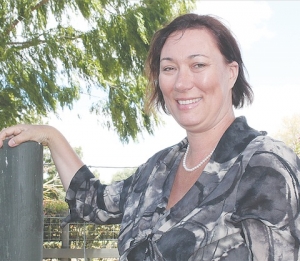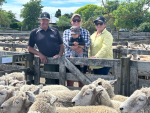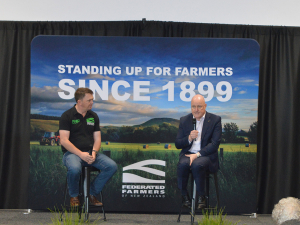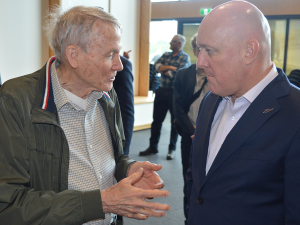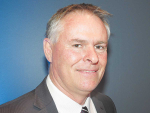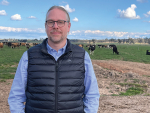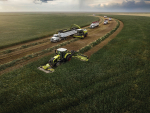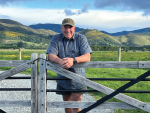The new chief executive of Dairy Women’s Network brings a myriad of international agricultural experiences to the position. Just four days into the new job, de Villiers, who was managing director of DeLaval NZ, spoke to Dairy News about her background.
“I come from the wide open spaces of South Africa,” she says of her childhood growing up on a beef and lamb farm in the ‘highveld’ area about two hours south-east of Johannesburg.
Their farm was open savannah and in the grain belt of South Africa.
It was a harsh environment. Cattle graze on the ‘veld’ or pasture in summer, but in winter it becomes dry and brown, cold and windy. Stock must be fed throughout winter and are highly susceptible to diseases and parasites. Dipping and vaccinations are a high priority.
“There’s a lot of commercial beef ‘lotting’ in South Africa; our farm was more natural grazing with some supplement of feed produced on farm for winter. We were close to the cities... so typically we sold those weaner calvers at six months.”
“The carrying capacity is much lower, they had 900ha with about 400 cattle and 400 sheep.”
She kept horses and competed in show jumping. “It was a good lifestyle,” she says.
She completed two degrees: in veterinary nursing and an honours degree in agricultural economics, studying at the University of Pretoria. De Villiers was then one of five people in South Africa selected for a bursary scheme for postgraduate students who went on to work at the Development Bank of Southern Africa.
“It was just post-apartheid and South Africa was gearing up to develop the rural areas,” de Villiers says. She worked mostly on irrigation projects and other schemes to uplift the rural poor.
“I then moved to the commercial banking sector where I started on the risk analysis side,” she says.
With the arrival of the first of her two sons she looked for a more flexible career and worked in rural banking, getting to know many different agricultural enterprises.
As the children grew, she returned to the development sector, working with a company administering US aid in African counties such as Tanzania and Kenya. “Again I was looking at the rural communities and how farmers could get to market easier.”
Her husband then got a job offer from DeLaval and they moved to Sweden. Zelda began consulting for the company on a strategic plan, looking at where milk production would grow globally.
“That’s how I started with DeLaval; eventually I became the head of the strategy unit globally.”
In 2009, the family moved to New Zealand and “the intention was always to stay and not move again,” she says. She initially worked in R&D on equipment for grassland farmers. New Zealand was head office for that unit, although the equipment was being developed for five other countries as well.
She moved into marketing for Australia, New Zealand and sub-Saharan Africa. “I was from an analytical background and that gave me the opportunity to develop a marketing flair.” After three years she moved to head sales for New Zealand so became the managing director for New Zealand.
“In all the roles I had in DeLaval in NZ, I was developing the sales teams, the marketing teams and developing peoples’ potential, I really liked that. I am from an analytical, financial background but I realised developing people was what I most enjoyed.”
She had been impressed with the Dairy Women’s Network through earlier dealings over sponsorship and found last year’s conference in Nelson inspiring. “So when the job became available I thought it a good match for me personally and for the network.” She feels fortunate to have been chosen.
“Coming from Africa where I worked in the development sector I understand the importance of women in the rural communities. They are often not noticed but they play a pivotal role. If you can’t develop the women you can’t develop the community.”
The Dairy Women’s Network is a successful organisation that has grown phenomenally but also has great potential.
“I come from a strong strategic background. I understand how to take strategy in a complex business environment and bring it down to basics... and how to implement it. This is a strength I can bring to take Dairy Women’s Network to the next level.”
But de Villiers says firstly she must find her feet and get to know the people. “I also want to understand the organisation, its strengths and weaknesses and work with the board… then I’ll take it from there.”





